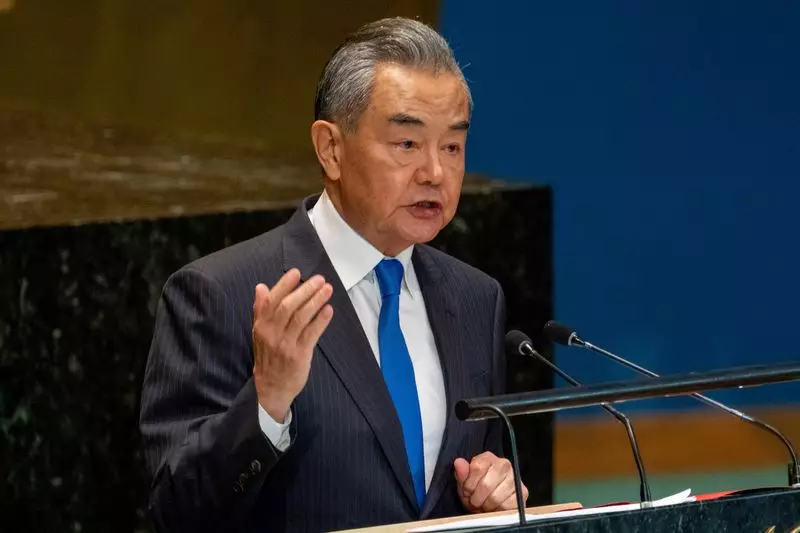In a rapidly evolving global landscape, China’s longstanding commitment to Africa is exemplified by its top diplomat’s recent New Year tour. This annual tradition, now in its 35th year, symbolizes not only a continuation of diplomatic ties but also an expansion of China’s influence in a region rich with resources and economic potential. Amidst the turmoil surrounding the geopolitical actions of Western powers, particularly those of the United States and Europe, China’s engagement is a consistently proactive effort that broadens its foothold on the continent, navigating the complexities of global power dynamics.
China’s Foreign Minister Wang Yi’s recent visits to Namibia, the Republic of Congo, Chad, and Nigeria are a clear signal of Beijing’s dedication to fostering relationships that extend beyond mere trade deals. Analysts have noted that this approach stands in contrast to the often fluctuating interests of Western nations, where political challenges and regional conflicts can distract from sustained diplomatic efforts. In this context, Wang’s itinerary serves as a reminder of China’s stable commitment to Africa, reflecting a long-term strategy rather than opportunistic engagements.
The significance of these visits cannot be understated, especially in light of the changing dynamics within global economies. As the United States, under the tenure of President Joe Biden, has only minimally engaged with sub-Saharan Africa, China’s focused diplomacy represents a vital opportunity for African nations. With over 50 votes at the United Nations, African countries hold significant leverage that China seeks to harness in its quest to reshape global governance structures to better align with its national interests.
As China’s economy faces the pressures of slower growth, Africa presents itself as a crucial avenue for expansion. Beijing is intensifying its financial assistance to the continent, particularly in areas laden with debt. This financial backing isn’t merely about charity; it’s a strategic initiative aimed at securing vital access to critical minerals and other resources essential for its industries, notably in renewable energy sectors such as electric vehicles and solar technology.
Moreover, with the pressures of overcapacity in the manufacturing sector, Africa serves as a promising market for Chinese exports, where infrastructure projects undertaken by Chinese state-owned enterprises become not only a source of local development but also a means to alleviate domestic economic challenges. This reciprocal relationship is essential for both parties, allowing China to navigate its economic hurdles while aiding African countries in achieving their developmental goals.
The geopolitical context of Wang’s visit also highlights China’s emerging role in regional security issues. The decision to visit Chad, particularly following France’s military withdrawal from the region, marks a strategic pivot that positions China as an essential partner for African nations grappling with security challenges posed by militant groups. Such engagement indicates that Beijing is not only focused on economic ties but is also keen on forging connections that can enhance stability across the region.
The Forum on China-Africa Cooperation (FOCAC) remains a critical platform for these discussions, and with the Republic of Congo poised to co-chair this forum, the commitment to collaborating on security, economic progress, and political stability will likely be reinforced.
China’s diplomatic overtures on the African continent illustrate a comprehensive strategy aimed at strengthening its role as a central actor in global affairs. This approach, characterized by consistent engagement and strategic financial investment, positions China as both an ally and an influencer in Africa’s development trajectory. As African nations navigate their own paths toward economic prosperity and stability, China’s role could become increasingly pivotal. The future may well see an African landscape increasingly shaped by Chinese interests and investment, reaffirming the notion that the relationship between China and Africa is one defined not just by economics, but by a shared vision for mutual growth and development.

